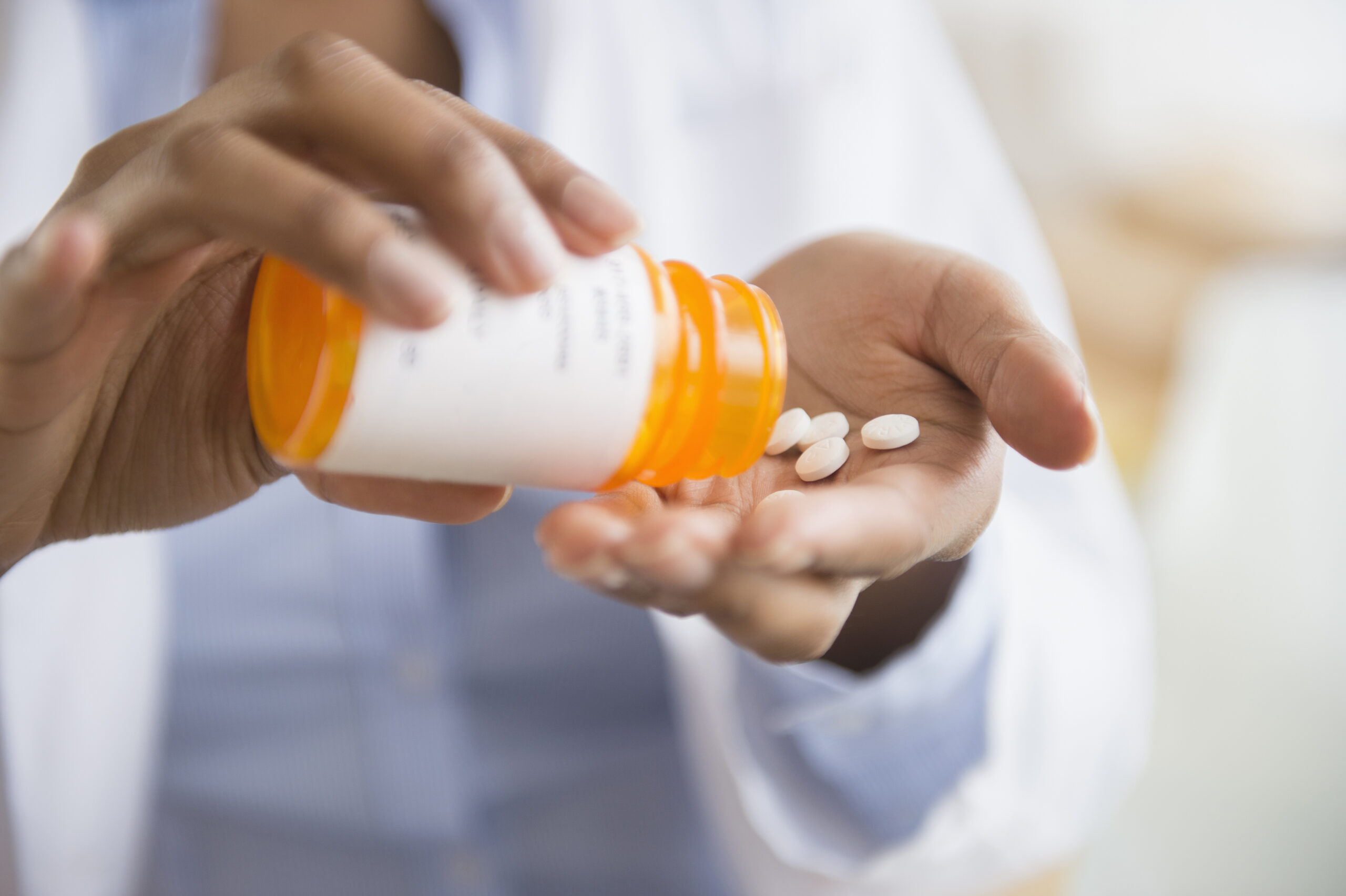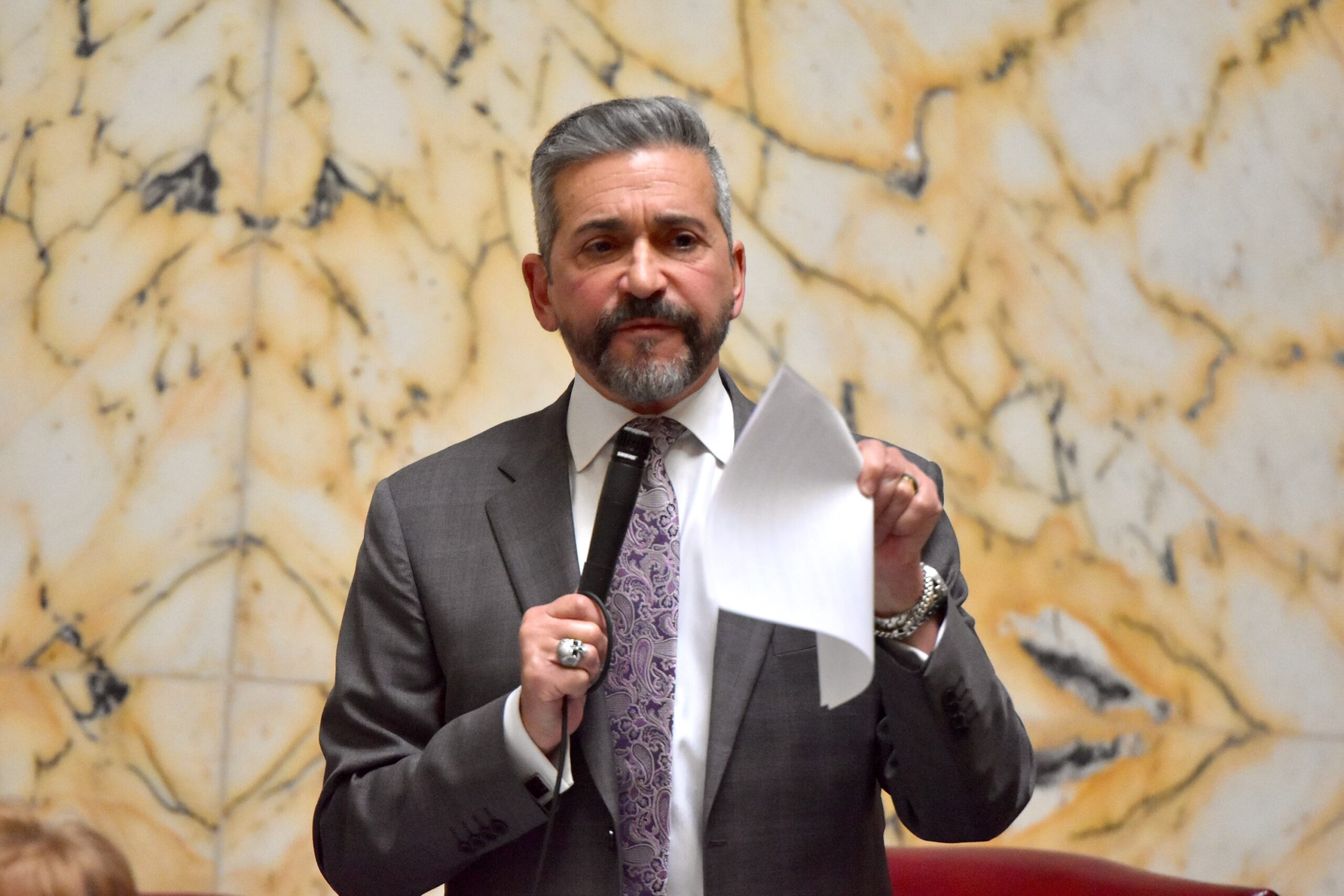PhRMA representatives say it’s ‘not the time’ to expand Prescription Drug Affordability Board authority

As health care advocates try to expand the authority of a state board tasked with reining in prescription drug prices, with the hopes of bringing costs down for all Marylanders, the powerful pharmaceutical manufacturing industry is pushing back.
Maryland’s Prescription Drug Affordability Board (PDAB) is currently tasked with finding ways to reduce the costs of medication for employees on the state’s health care plan. But legislation heard in the House and Senate last week would allow the board to consider efforts that may work to reduce drug prices for those not on the state plan.
SB 388 and HB 340 would allow the board to implement upper payment limits for prescription drug purchases and payer reimbursements of prescription drug products if the state finds that certain drugs are “unaffordable” for consumers.
But even though the board was created in 2019 by the General Assembly, it has yet to bring down costs even for those on the state health plan. Members of Pharmaceutical Research and Manufacturers of America, PhRMA, are long-standing opponents of state prescription drug affordability boards and argue that Maryland’s PDAB has not shown that it can lower costs.
“Maryland PDAB is still working to develop the upper payment limit action plan with their current patient pool. Now is not the time to expand,” Charise Richard, senior director of state policy for PhRMA, told the Senate Finance Committee in opposition of SB 388.
Laura Srebnik, director of state government affairs for Biotechnology Innovation Organization, said the board “has not impacted any patient out-of-pocket costs.”
“And expanding it at the moment will just expand a policy that will not help patient out-of-pocket costs because the legislation does not force rebates to go down to the patients and it won’t help them with their co-pays,” she said.
PDAB has been slow to begin operating and has not yet implemented measures to bring down drug costs, due in part to a veto from former Gov. Larry Hogan (R) amid pandemic-induced economic uncertainty in 2020 that delayed the board’s formation.
Due to the rough start, the prescription drug affordability board has not yet started any cost reduction efforts. Just January, the board started the drug selection process, which will likely take several months. When the board finally selects drugs to review, then board members can consider cost reduction efforts such as upper payment limits.
Kelly Schulz, a former Republican delegate and a member of Hogan’s cabinet, sits on the PDAB stakeholder council representing biotechnology companies, said that it is too soon to expand the authority of the board. She said she recognizes that the board has faced hurdles along the way, but it is not clear if upper payment limits work.
“It is premature to expand PDAB’s authority to the full commercial market as the initial set of drugs are being selected for initial cost reviews,” Schulz, the CEO of the Maryland Tech Council, told the House Health and Government Operations committee. “We should take some time to learn from the process and evaluate whether the PDAB’s actions are having the intended effect of lowering out of pocket costs for patients.”
“We urge lawmakers to take a cautious approach to PDABs in general and think about unintended consequences and other strategies to lower costs for those patients,” she added.
But the bill sponsors say that drug prices are too high for Marylanders to afford.
“Rising costs of prescription drugs is impossible to ignore,” Del. Jennifer White Holland (D-Baltimore County) told committee members. She is a co-sponsor of the House bill with Del. Bonnie Cullison (D-Montgomery).
Cullison says if the state implements upper payment limits for all prescription drug purchases, those savings would likely come into premiums, but not from out-of-pocket prescription drug costs. As providers pay less for prescription drug purchases, then the premiums would also go down, she said.
Supporters of the legislation argue that the bill does not require board members to implement upper payment limits, but would give them the option if they find it an appropriate method of cost reductions.
The Prescription Drug Affordability Board, itself, has not taken a position on the legislation.
The legislation is popular among Democratic political figures in Maryland. Howard County Executive Calvin Ball, Baltimore County Executive Johnny Olszewski Jr., and Baltimore Mayor Brandon Scott all testified in favor of the legislation in the Senate last week.
The bill also has the support of the Legislative Black Caucus of Maryland, which is pushing the bill as one of its 2024 legislative priorities.
Vincent DeMarco, president of Maryland Health Care for All Coalition and proponent of the leigslation, is skeptical of the claims made by PhRMA and others in opposition.
In response to the criticism that PDAB has been slow to operate and has not yet yielded results, DeMarco argued that PhRMA has opposed the board since the beginning.
“It’s really shameful for these folks to criticize the board for taking so long when they try to undermine it at every step,” he said. “The previous governor vetoed the funding bill, and slow-walked the administration.”
DeMarco also pointed to recent data that suggests pharmaceutical manufacturers often spend more on advertising and executives’ salaries than on research and development of new drugs.
“Under Governor [Wes] Moore, they have made progress. They will soon adopt an upper payment action plan for state and local governments, and I believe that will prepare them to make high cost drugs more affordable for everyone. It’s really shameful for Big PhRMA to at one point delay things, and then denounce the delay,” DeMarco said.
Rolling Stone report on conservative influence
DeMarco is also concerned with a recent report finding that PhRMA has donated to right-wing organizations interested in undermining the federal prescription drug negotiations for the nation’s elderly, as well as push other conservative priorities.
According to a January report from Accountable.US, PhRMA has donated about $530,000 to conservative organizations such as the Heritage Project, which has created a controversial “presidential transition project” known as Project 2025, according to PhRMA’s 990 tax filings from 2022.
In 2023, Project 2025 published “Mandate for Leadership: the Conservative Promise” that outlines right-wing priorities that would be implemented should a Republican candidate win the 2024 presidential election.
Among other priorities, Project 2025’s Mandate For Leadership calls for a repeal of Inflation Reduction Act’s Medicare Drug Negotiation Program, which is attempting to lower prescription drug prices for Americans over the age of 65. The federal Medicare negotiation program is similar to the PDAB’s efforts to reduce prescription drug costs for those on the state health insurance.
Rolling Stone first reported PhRMA’s donations to Project 2025-associated organizations in January.
The 2025 project claims that the Medicare negotiation program will “limit access to medications and reduce access to new medications,” which is similar to PhRMA’s argument against state prescription drug affordability boards.



 Creative Commons Attribution
Creative Commons Attribution